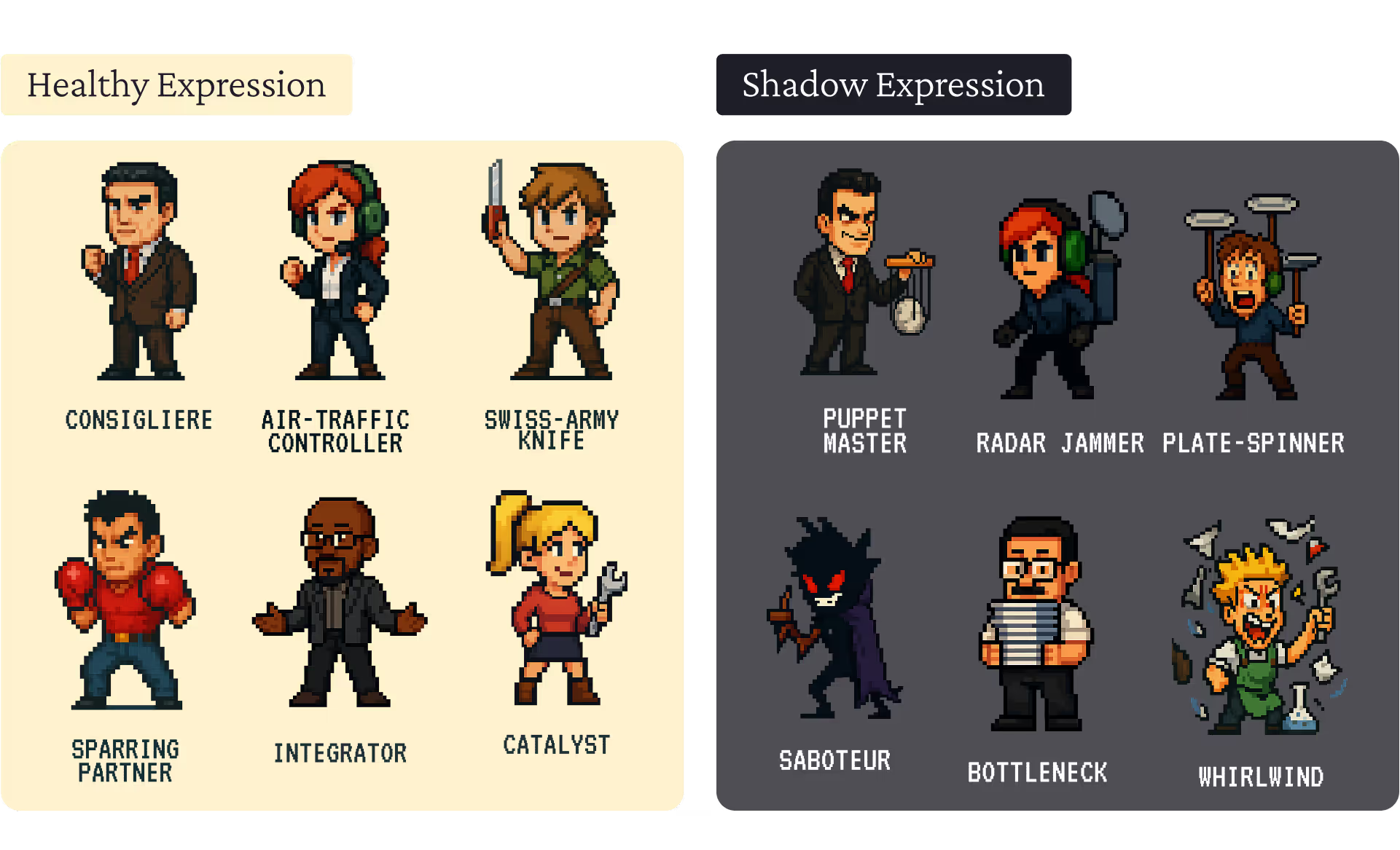My name is Bonnie Brieden and I’m the Chief of Staff at Plato, an education platform for engineering leaders.
I'm settling into my CoS role after 20 months on the job and the Chief of Staff Network has been a godsend for support along the way. When they asked me to do a 7 minute lightning round talk at the recent Chicago Summit, I had to stop and think about what I would say that would be helpful and meaningful to this amazing group of Chiefs of Staff. I spoke from the heart and from my learnings over the last 20 months and decided to share it more broadly.
One of my biggest lessons learned over the years in leadership roles and especially over the last 20 months in my Chief of Staff role is the importance of Embracing Chaos. I'll share why it's hard, why it's good, and how to do it.
Why it's Hard
- Chaos goes against my nature. I'm a perfectionist. I like things to be neat, tidy, and orderly. It stresses me out when things are messy and chaotic. That's probably true of most Chiefs of Staff. We like things to be controlled, steady, and measurable.
- It puts you behind the curve. You have to catch up and be in react mode. Things slip through the cracks and if they're important things, they come back to bite you.
- It's hard to know where to start when you're operating in a really chaotic environment.
Why it's Good
- Job security. Cleaning and structuring is what the CoS role is for - it's what we do best. Many of us are generalists and we have a brand for getting things done and making things happen. If you are in an environment where there's a lot to clean up, organize, and structure, that can be chaotic, but think about it as job security.
- Change is good for business. Change begets chaos. If you're in a cycle of pivoting, measuring, re-evaluating, and pivoting again and continuing in that cycle, no matter what it is, it will keep a business alive and thriving and not dead or dying.
- You can move faster when you are constantly changing. You can learn more when you're moving faster and you can earn more accomplishments under your belt. You can save more if you're in an efficient, savings mode. You can drive more revenue if you're in a growth role.
- It's good for your sanity and balance. You can't do everything perfectly, you just can't, unless you own a very small scope and have a very day-to-day kind of job. There will always be chaos in some area of your life because you can't do it all and you can't do it all perfectly. You need to embrace that because otherwise you'll break down, you'll burn out, or things around you will suffer. If it's not your job, it's your family, your home life, your balance. It's not fair for it to be chaos at home and order at work. That is not a fair balance for anyone. I have recognized that I am able to move forward, learn and grow in my career when I let things go, when I delegate more, and when I'm not expecting perfection in every area of my life. I wish I could be as organized at home as I am at work and sometimes I'm not as organized at work as I would like to be either, but that's because I can't let everything slip at home.
How to Do It
- Find the noise, look for the signals. Observe the people around you - behaviors, tone, body language, interactions, emails, slack, meetings. Look for where there's noise and tackle it. Don't assume it's not your problem. Don't assume it's not going to creep into your sphere of influence. In the CoS role, it's going to come around to you anyway at some point, and it's also your responsibility to be finding the noise and putting fires out before they can catch hold.
- Be the disruptor. Ask the hard questions, poke holes, stir things up. Not just for the sake of it, but for the sake of change, improvement, opportunity. This is what good leaders do. You can't just be in the status quo. You can't just assume everything's great, or that if you're not hearing about it that it's not a problem or can't be a problem in the future. Or maybe it's an opportunity lost. Question everything, don't get comfortable, be the disruptor, even when it makes your life harder.
- Prioritize, prioritize, prioritize. It's in the CoS job description. We are always needing to prioritize for ourselves, for others, for the team. But with that, you have to align with your stakeholders and those impacted, including your principal, other stakeholders, other leaders on the team, or others on the team. What will drop, what will not drop, the timeline for everything, setting those expectations and empowering others. Part of prioritizing is delegating.
- We have to be super savvy with tools, automation, AI, data analysis. This is how all of these things are going to come together, how to find time to do what's important, to do what you've prioritized. It's how you're going to find those signals, how you're going to be the disruptor. You have to be good at learning new tools, adapting to the technology, automating as much as you can so you aren't just bogged down all the time. This has been a hard one for me because I didn't grow up with a lot of the tools that the younger generations are already used to today. But I would encourage you to find other people to inspire you and help you with those kinds of things because they really do make a difference and make you more effective in your job.
As contrary as it seems, Embracing Chaos will make you a better CoS and a better leader. Hope this helps you on your journey!





.avif)
.avif)








